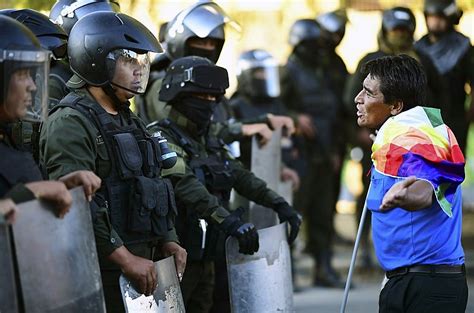The attempted coup in Bolivia might have failed, but it has reignited a myriad of discussions around the country’s political stability, historical precedents for military takeovers, and the influence of foreign powers in shaping its political landscape. Bolivia, renowned for its tumultuous political history, has witnessed nearly 200 coups and revolutions since gaining independence from Spain two centuries ago, and the latest disturbance fits well into this historical pattern.
One cannot discuss Bolivia’s ongoing crisis without harking back to the controversial legacy of Evo Morales, the country’s first indigenous president, and the series of political upheavals that have ensued since his rise to power. Morales’ tenure saw unprecedented strides in social programs and the redistribution of wealth to Bolivia’s poor and indigenous people. However, his persistence in holding onto power through disputed elections, notably the contested fourth term in 2019, brewed significant discontent among opponents. This led to his ousting and the instatement of Jeanine Áñez as interim president, a move criticized by Morales’ supporters who labeled it a coup. Despite promising and delivering elections, Áñez was subsequently imprisoned, creating a campaign of political vendettas that continue to polarize the nation.
The role of foreign influence in Bolivia’s political affairs cannot be overstated. Historically, the U.S. has played a significant role in supporting military coups across South America, often under the guise of promoting democracy but frequently to safeguard strategic interests. The infamous Operation Condor, a campaign executed by right-wing dictatorships in South America in the 1970s and 80s with tacit U.S. support, sought to suppress political opposition and maintain control. This legacy casts a long shadow over current events, as accusations fly that the U.S. might somehow be linked to these destabilizing efforts.
Interestingly, this narrative isn’t confined to Bolivia. Other nations around the world have experienced similar interventions, prompting debates on the effectiveness and ethics of foreign involvement in sovereign affairs. For instance, Arab leaders are often seen as proxies of the U.S., with democratic elections frequently disrupted by coups or assassinations. The same could be said for various nations in Africa and Asia, where the specter of foreign interference hangs heavy over the political process. While some may argue that such interventions help curb authoritarian regimes, others assert that they simply replace one form of despotism with another, exacerbating instability rather than resolving it.
On the ground in Bolivia, the recent coup attempt has failed to secure unanimous support from the military. Reports of tanks and armored vehicles outside government buildings lacked concrete evidence, underscoring the confusion and lack of cohesion among the plotters. As the dust settles, it seems a significant part—though not a majority—of the population might have tacitly supported the coup, reflecting a deep polarization within Bolivian society. The indefinite general strike declared by unions further complicates the situation, as power struggles between incumbent President Luis Arce and former President Evo Morales manifest into an intense political war.
In conclusion, Bolivia’s political turbulence showcases the complexities and contradictions of striving for democracy in a landscape marred by historical grievances, foreign intervention, and internal strife. As the country grapples with its future, observers can only hope that a peaceful and democratic resolution will eventually prevail. The broader question remains, however: Can democracy thrive in regions deeply affected by external influences and historical injustices? This evolving situation in Bolivia may offer critical insights into that challenging inquiry.


Leave a Reply